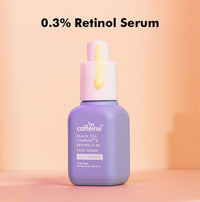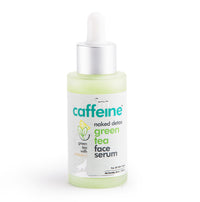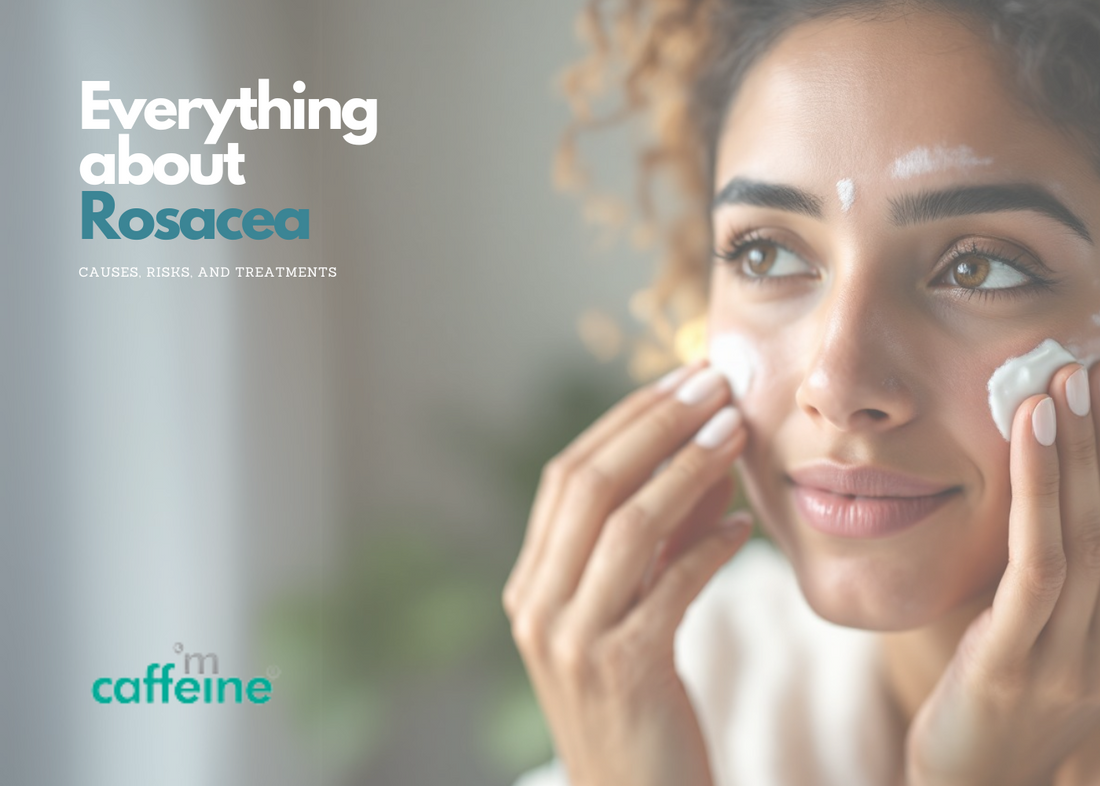Introduction
Have you ever noticed constant redness on your face that won’t go away? Or small bumps and visible veins that seem to outbreak unexpectedly? If so, you might be dealing with rosacea—a common skin condition that affects millions of people.
Rosacea isn’t just about appearance, it can also cause discomfort, sensitivity, and even impact confidence. The good news? With the right rosacea treatment, managing this condition is possible. By understanding the causes of rosacea and applying effective skin care practices into your daily routine, you can reduce this outbreak and improve your skin’s health.
The guide will walk you through everything you need to know—from understanding its causes and triggers to practical tips for daily care. Plus, we’ll see effective rosacea treatment options and why consulting a dermatologist can make a big difference. Whether you're looking for solutions or just starting to learn about rosacea, this is your go-to resource for healthier, calmer skin.
Understanding Rosacea
Rosacea is a common skin condition that causes redness on the face, often with visible blood vessels and small bumps that look like acne. It mostly affects the cheeks, nose, forehead, and chin. Sometimes, it can also make the skin feel warm and sensitive.
Types of Rosacea
Multiple forms of rosacea often require different treatment approaches. Four common subtypes include:
-
Erythematotelangiectatic Rosacea: Marked by persistent redness and visible blood vessels.
-
Papulopustular Rosacea: Characterized by redness with small, red bumps that sometimes resemble acne.
-
Phymatous Rosacea: Involves thickening skin and enlargement of facial features, frequently affecting the nose.
-
Ocular Rosacea: Affects the eyes, causing irritation and redness around the eyelids.
Different types require adjustments in rosacea treatment to ensure each patient receives a personalized approach.
Rosacea Symptoms
Facial redness and visible broken blood vessels often signal rosacea. Occasional burning, stinging, dryness, or acne-like breakouts also occur in many cases. Accompanying symptoms may include eye irritation, swelling, and tumours that can affect daily life.
-
The skin, especially on the cheeks, nose, forehead, or chin, often looks red. This can come and go or stay for longer periods.
-
Small, broken veins may appear on the face, making the skin look patchy or irritated.
-
Many people feel a burning, stinging, or itching sensation on their skin.
-
The skin may feel rough, dry, or extra sensitive to skincare products, sun, or weather changes. Some people get small red bumps or pus-filled pimples that look like acne but aren’t.
-
Certain areas of the face, like the nose or cheeks, may become swollen or thick over time. Rosacea can also affect the eyes, causing redness, irritation, dryness, or a scratchy feeling.
What Triggers Rosacea Symptoms?
Certain external and internal factors can trigger worsening of rosacea. Common triggers include sunlight exposure, hot or spicy foods, alcohol, and extreme temperature changes.
Stress and vigorous skin care products may also contribute. Avoiding known triggers and adopting suitable skin care practices reduce the outbreak and support overall treatment goals.
Exploring the Causes and Risk Factors
Understanding the cause of rosacea is crucial for effective management and treatment. In dermatology, it's recognized that multiple factors contribute to the development of rosacea, from genetic predispositions to environmental triggers. Here's a closer look at the key causes and risk factors:
-
A family history of rosacea increases the chances of developing the condition. People with fair skin are more prone.
-
The immune system may overreact to certain triggers, causing redness, swelling, and irritation on the skin. Certain bacteria and microscopic mites on the skin may contribute to rosacea by triggering inflammation.
-
Sun exposure, extreme temperatures, wind, and pollution can worsen symptoms by irritating sensitive skin. Stress, spicy foods, alcohol, and hot beverages often cause flare-ups, making symptom management more challenging.
-
Conditions like acne history or hormonal changes may increase the likelihood of developing rosacea.
Diagnosis & Effective Treatments Available
Accurate diagnosis of rosacea involves a thorough patient history, physical examination, and sometimes specialized tests by a dermatologist. Reliable diagnostic criteria help in determining the severity and specific type of rosacea Treatment options range from lifestyle adjustments to prescription medications.
Topical rosacea treatments are frequently used, including antibiotics and anti-inflammatory agents. Long-term success depends on consistency in skin care.
Non-prescription products that provide gentle moisturization and soothe irritation play a part in effective rosacea treatment. Including a barrier repair cream like the Ceramide Intense Barrier Repair Cream for Dry to Very Dry Skin can enhance the skin’s natural resilience.
For example, gentle moisturizers can support healing and improve skin barrier function. Consider trying products such as the Coffee Oil Free Face Moisturizer with HA Pro Vitamin B5 that offer lightweight hydration suitable for sensitive skin.
Pharmaceutical options and complementary dermatology solutions are used together to manage symptoms and avoid outbreak. Regular follow-up with a skin care professional ensures that treatment remains modern and personalised to individual needs.
Lifestyle Changes for Better Skin Health
• Adopt a holistic approach to daily skin care for managing rosacea symptoms. Avoid harsh ingredients by choosing products designed for delicate skin.
• Use gentle cleansing methods and fragrance-free moisturizers to calm irritation. Protect skin from UV exposure with physical barriers and sunscreen.
• Incorporate daily stress management to support overall skin health. Maintain a balanced diet with antioxidants and omega fatty acids to reduce inflammation and enhance resilience.
Hydrating and soothing products, such as the Kombucha Hydra Repair Face Moisturizer with HA Ceramides, help calm the skin and restore moisture balance.
Even the Black Tea Complex Night Cream offers nighttime nourishment that supports healing and strengthens the skin’s protective layer.
A holistic rosacea treatment routine that addresses both external and internal health forms a balanced approach. Making small lifestyle modifications can yield significant improvements in skin health and reduce rosacea outbreak.
Conclusion
Managing rosacea through a comprehensive approach allows for better control over symptoms and fosters long-term improvement. Combining proper skin care, targeted rosacea treatment, and lifestyle changes results in consistent benefits. Personalizing a treatment plan that includes dermatology recommendations and quality skin care products empowers individuals to take charge of their condition. Effective rosacea treatment involves routine care, preventive measures, and periodic professional guidance. Revisit your daily regimen and adjust treatments as needed, always keeping gentle skin care a priority.
Commit to a holistic approach for lasting skin health and improved quality of life, turning each day into a step toward more balanced, beautiful skin.
FAQs
Q1. What is rosacea and how can it affect daily skin care?
Rosacea is a chronic inflammatory condition that causes facial redness and sometimes acne-like bumps. A consistent skin care routine that is gentle in nature helps manage symptoms effectively.
Q2. Which factors commonly trigger rosacea flare-ups?
Common triggers include sun exposure, spicy food, alcohol, and stress. Avoiding these triggers while using suitable skin care can reduce flare-ups.
Q3. How is the diagnosis of rosacea determined?
A dermatologist typically diagnoses rosacea through a physical exam and detailed patient history. In some cases, additional tests may be required to exclude other conditions.
Q4. What are effective treatment options for rosacea?
Treatment usually includes topical medications, prescription antibiotics, and skin care adjustments. Incorporating targeted rosacea treatment with gentle moisturizers can reduce inflammation.
Q5. What lifestyle changes benefit someone with rosacea?
Practical changes involve using fragrance-free, non-irritating products and avoiding known triggers. Maintaining a balanced diet and stress reduction techniques also support better skin care.












